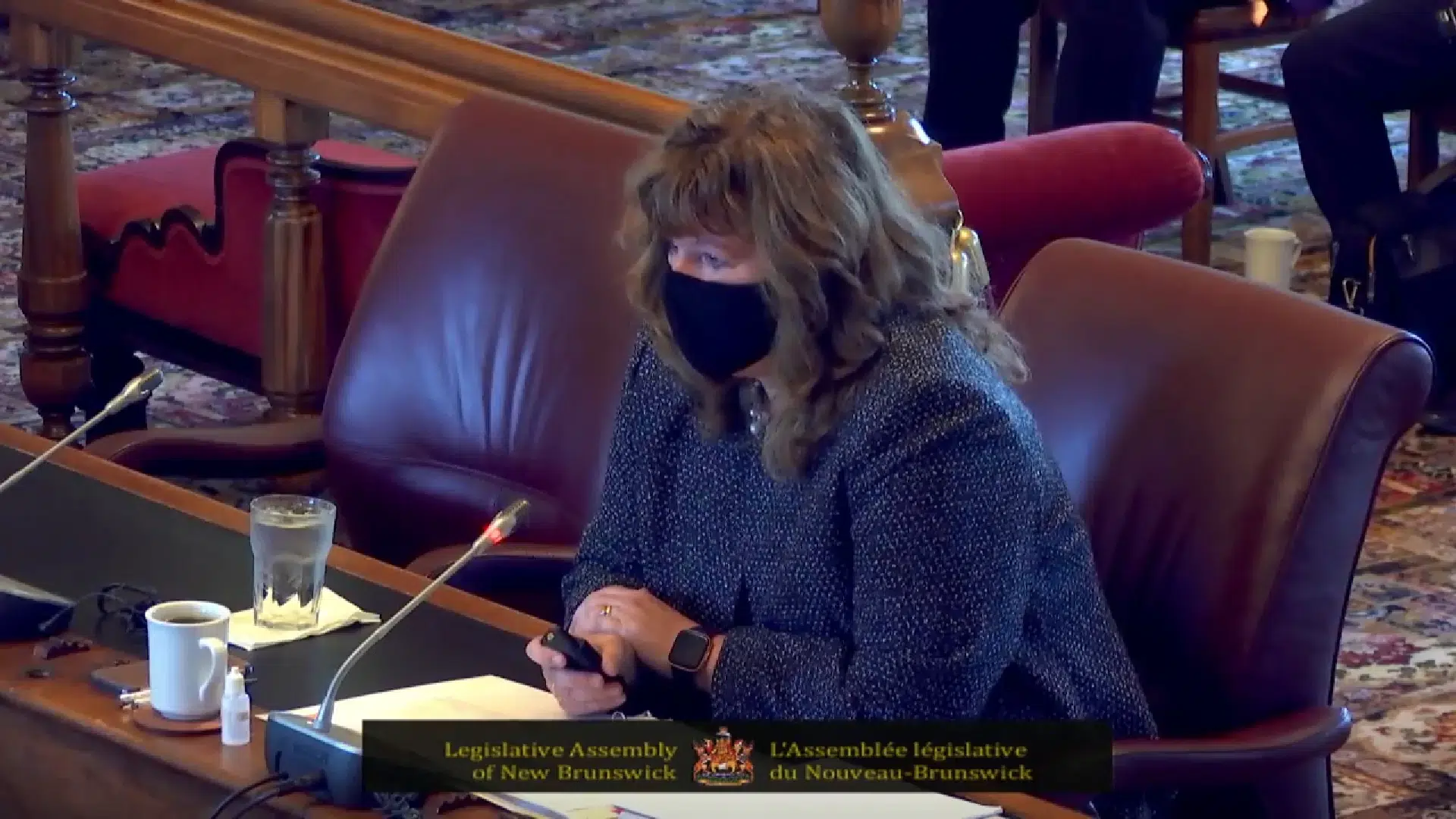
Janice Leahy, the acting auditor general of New Brunswick, presents her latest report on Oct. 7, 2021. (Image: Video capture)
New Brunswick’s acting auditor general is critical of the rollout of an emergency benefit aimed to provide bridge funding for those impacted by pandemic closures until federal funding arrived.
The benefit was distributed in 2020. It aimed to help 40,000 New Brunswickers with a one-time $900 benefit following a successful application.
Acting Auditor-General Janice Leahy said cabinet approved the program and provided funding after which the Department of Post-Secondary Education, Training and Labour designed and contracted the program.
“While the department initially believed they would be monitoring the program’s implementation, further department resources were needed to ensure the program’s success,” Leahy said.
The Canadian Red Cross was hired to administer the program and in her remarks on Thursday morning, she noted the organization was not audited for this report.
Leahy said they found the program had poor identity validation.
“Lack of monitoring by the department is also concerning,” Leahy said. “This impacts the accountability of the service provider to the department, and ultimately to New Brunswick taxpayers. Oversight and monitoring of programs to help the most vulnerable should be a priority for government.”
Leahy said valid social insurance numbers were not obtained for 827 benefit recipients, increasing the risk of fraud as applicants could be provided with more than one single payment. It was also part of issues involving delays in issuing appropriate tax reporting information as required by the Canada Revenue Agency, she said.
The acting auditor general said they also found the program lacked an appeal process.
“Some applicants were denied their initial submission. Technical issues were a reason for some of the denied applications. We expected the department would have ensured the Red Cross had such a critical component, an appeal process, with program delivery in place prior to undertaking the program but this was not the case. They were no set criteria for appeal. MLAs and the office of the Premier sent names to the department for re-application but, this option was not communicated to the public,” Leahy said.
Fourteen recommendations were submitted to government which address planning, contracting and monitoring weaknesses in the implementation and planning of programs.







